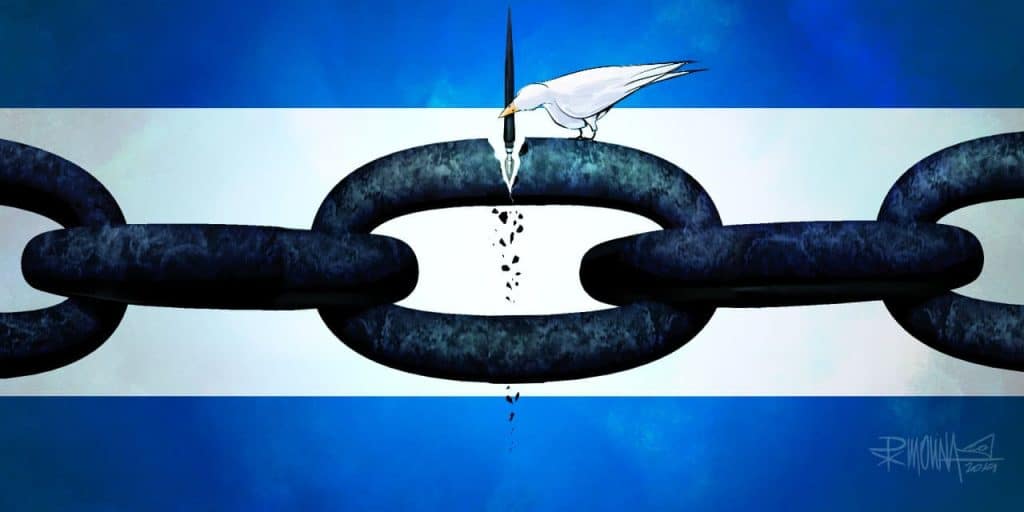A Russian spy center operates at an Army military base in Managua; Daniel Ortega’s bodyguard chief removed from office; MEFCCA minister fell for corruption in multimillion-dollar programs; Anxiety and silence among public workers after announcement of state “restructuring”; Rosario Murillo orders the fall of the head of the Army’s “Political Intelligence”.
These are the headlines of some of the main journalistic investigations that we have published in recent weeks in confidencial.digital, the independent media outlet that I founded 28 years ago in Nicaragua, and that I now run in exile from Costa Rica.
Our editorial office was raided twice by the police – without a court order – after a wave of social protests, followed by a violent repression against human rights, broke out in 2018.
In 2021, the media outlet was illegally confiscated by the Daniel Ortega dictatorship.
All of our journalists were forced into exile to continue to do their journalism freely, and our independent sources of information are persecuted and threatened.
However, the news that we continue to publish about public corruption, the internal conflicts within the regime, the purges of high-ranking officials, the mass exodus of almost 10% of the population, and the use of Nicaragua as a springboard for the illegal export of migrants to the United States, are stories that no one hears about in the official press.
Our audiences, inside and outside Nicaragua, whether they are supporters or opponents of the regime, have an alternative source of information free from censorship, which also offers quality journalism to international audiences.
Behind each of these investigations is the talent of young journalists, who do not submit to censorship and self-censorship, and above all, the trust that sources, including public servants – civilians and military – maintain in the press in exile.
History is repeating itself in Cuba and Venezuela. Independent journalism from exile is a mirror of the dark clouds that threaten the press in Latin America, and it is also an example of the resilience of good journalism. Where the rule of law has collapsed, and where civil society is also under siege or on the verge of extinction, the only defense of the independent press lies in its own credibility.
In these three countries, dictatorships have criminalized freedom of the press and freedom of expression, to the point that journalists cannot identify themselves as such and must omit signatures from their articles to avoid being arrested.
In Nicaragua, journalist Víctor Ticay spent 17 months in prison, convicted of the alleged crime of “conspiracy” for having transmitted images of a religious procession on his Facebook account.
In Cuba and Venezuela, there are dozens of journalists in prison, accused of “terrorism” or “inciting hatred” for reporting on social protests or electoral fraud, and for expressing opinions on their social networks.
Meanwhile, the State exercises different forms of direct and indirect censorship, including blocking the Internet to prevent access to independent media. Despite these extreme restrictions, the independent press survives through an ecosystem supported by journalism in exile
The Inter-American Press Association (SIP) this year awarded the “Great Prize for Press Freedom 2024”, its highest distinction, to Journalism in Exile “in honor of colleagues and Latin American media that are increasingly forced to move or emigrate due to the violence, threats and persecution by criminal groups, corrupt officials and authoritarian governments.”
SIP has documented a growing increase in the number of exiled journalists, “mainly from countries such as Nicaragua, Venezuela, Guatemala, Cuba and Ecuador, and internally displaced people in Mexico and Colombia. The phenomenon also includes the editorial staff of Cuba, Nicaragua and Venezuela, some of which have their operations abroad because they are victims of systematic persecution.”
The challenges to continue doing journalism in exile are monumental. The most urgent is to provide security to journalists and collaborators, who are at risk, and to the news sources to communicate through secure channels. The most complex is to achieve financial sustainability of the newsrooms in exile.
My colleague Luz Mely Reyes, editor in chief of Efecto Cocuyo in Venezuela, advocates for identifying “host countries that provide special protection” to exiled journalists so they can continue doing their work, while Carlos Manuel Álvarez, director of El Estornudo in Cuba, proposes the creation of new “support networks” and forms of international financing for the press in exile, which “is no longer something transitory.”
Indeed, under the police state of authoritarian regimes, the press in exile is now a permanent condition. The onslaught of dictatorships against the press also poses a challenge to the international community: it is imperative to preserve the last reserve of all freedoms.
This article was produced to mark World News Day, Choose the Truth, a campaign to draw attention to the need to preserve and promote independent journalism. World Association of Newspapers and Editors WAN-IFRA.
CREDITS
This piece is a repost entry by Carlos Fernando Chamorro, founder and editor of Confidencial. It was originally published on September 30, 2024. Confidencial is a co-founder of NEMO.
YOU MAY WANT TO READ

NEMO stands in solidarity with Meydan TV and its team
On December 6, 2024, around 1:00 pm local time, the regime of Ilham Aliyev illegally detained six employees of Meydan TV, the largest digital news outlet in Azerbaijan and a founding member of the Network of Exiled Media Outlets (NEMO). Read more.
Meduza faced the most intense cyberattack campaign in its history
In February 2024, the Russian authorities launched a series of cyberattacks against Meduza, which have been more intense than ever. This is how it all happened.


